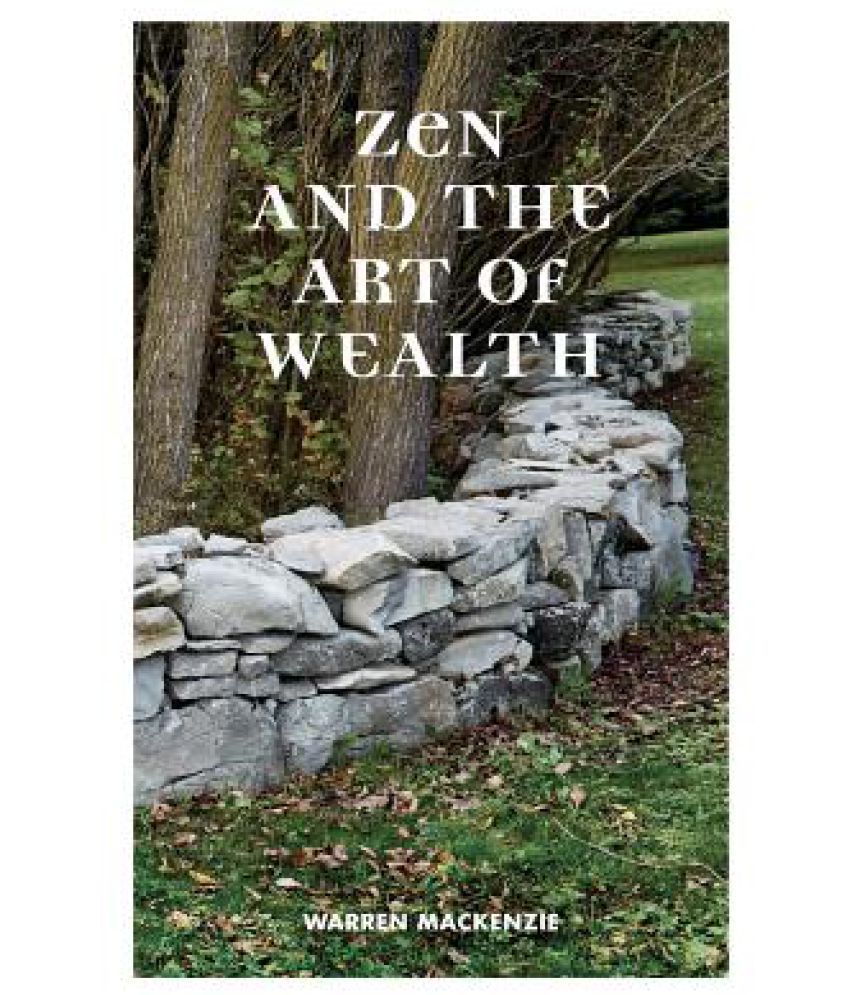Something went wrong. Please refresh the page and try again.
Something went wrong. Please refresh the page and try again.
Notifications can be turned off anytime from settings.
Item(s) Added To cart
Qty.
Something went wrong. Please refresh the page and try again.
Something went wrong. Please refresh the page and try again.
Exchange offer not applicable. New product price is lower than exchange product price
Please check the updated No Cost EMI details on the payment page
Exchange offer is not applicable with this product
Exchange Offer cannot be clubbed with Bajaj Finserv for this product
Product price & seller has been updated as per Bajaj Finserv EMI option
Please apply exchange offer again
Your item has been added to Shortlist.
View AllYour Item has been added to Shopping List
View AllSorry! Zen and the Art of Wealth is sold out.


You will be notified when this product will be in stock
Brief Description
Zen and the Art of Wealth explains the essence of Zen as two friends chat while building a drystone wall. The goal in Zen is to acquire self-knowledge by examining ideas of self and rejecting those that do not represent our true self. In a similar way in this book we examine investing strategies and reject ideas based on flawed assumptions.
Learn More about the Book
Alex and Dave have been friends for over 50 years and the discussion takes place over a weekend get together at Alex's farm. Alex is an investment advisor and a lifelong student of Zen and Dave is a once successful businessman who is now facing bankruptcy. While working together building a drystone wall, Alex gives his friend Dave an introduction to the philosophy of Zen, and in the process, helps him deal with a serious financial problem.
Usually individuals become interested in Zen because they hope this philosophy may lead to greater happiness. They expect this to happen as they gain a better understanding of their life, their purpose, and who they really are. In this case Dave becomes interested in understanding more about Zen because he discovers that in his true essence he is much more than the idea he has of himself as a failed businessman.
AN INTRODUCTION TO ZEN PHILOSOPHY
Zen philosophy can be traced back to India, where, 2500 years ago, the practice of Zen was seen as a way to reduce suffering. Much has changed in the world in the past 2,500 years but the source of suffering is still the same. It doesn't matter whether the desire is for world peace, better health, more money or a healthier environment - the source of all unhappiness is unfilled desire - and this desire is always associated with one of the changing ideas we hold of ourselves.
We live in a world of ideas and we entertain many different ideas of who we are as we see ourselves in different ways and in different roles. We may describe our self according to the work we do, i.e., we are a student, a parent, a doctor, or a salesperson. Or we may describe ourselves according to our level of confidence, i.e., we are confident and successful, or we may see ourselves as being unsuccessful, unhappy or a failure.
The ideas that we have of our self are constantly changing. Even during the day, at different times we may describe our self differently depending on whether we have just experienced a success or a failure, or based on over hearing a very positive or very negative comment. Zen offers a path to happiness by helping people find their true self. The method is to examine and eliminate all the false ideas of self and when all the false ideas have been seen as false - what you are left with is your true essence.
The secret to understanding who you really are is to see beyond the current idea and the constantly changing ideas you have of yourself and find that part of you that has never changed and will never change from birth to death.
THE BASIC RULES FOR FINANCIAL SECURITY
In the philosophy of Zen you get to the truth of who you really are by examining ideas and rejecting those that are false. In somewhat the same way you can achieve financial security by examining many ideas, eliminating those that don't work, and focusing on a smaller number of common sense investing ideas that always work over time.
Included are three appendixes: Alex's list of 50 things that do-it-yourself investors should consider, Alex's list of 21 ways to reduce investment management fees and Alex's article on the value of having an Investment Policy Statement.
Some common sense ideas that lead to financial security and which are explained include, clarifying your most important goals, having an investment portfolio that is 'goals based', addressing all the risks (including the risk that you fail to achieve your goals), being well diversified with 6 to 8 different investment mandates, focusing more on the investment process than on the investment products, using ETF's, robo-advisors or professional investment managers instead of individual stocks and bonds, paying attention to fees and income tax and, keeping it simple.
The images represent actual product though color of the image and product may slightly differ.
Register now to get updates on promotions and
coupons. Or Download App